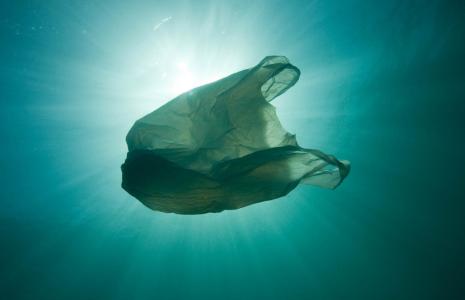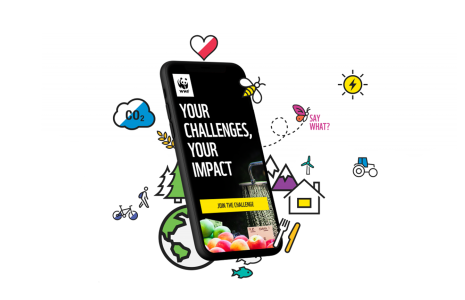1. Buzzwords
Is the company or brand using words that sound good, or are they words that actually mean something?
Here is a short guide to some of the most common buzzwords used when greenwashing:
Bio
Short for biological. Often used on labels saying ‘bio-based’, meaning made from living organisms, usually plants.
Biodegradable
It will break down in the natural environment with the help of bacteria and microbes. There is no legal time limit - it can take anywhere from 1 week to 400 years to break down in the environment. You may buy a biodegradable sponge which lasts longer than you do!
Carbon neutral
This doesn’t mean that the product or business does not produce any emissions. Instead, it means that the company have ‘offset’ their emissions by investing in projects which supposedly absorb an equal amount of greenhouse gases from the atmosphere. See our other page on carbon offsetting.
Climate friendly
This is another way of saying carbon neutral, often meaning the company has offset their carbon footprint, or reduced their environmental impact in some way.
Compostable
Perhaps the most widely misunderstood claim. There are two types of compostable:
Compostable - this means it can be broken down via ‘industrial composting’ which uses a big machine with lots of organic matter, a high temperature and air flow to compost items. It does not mean you can put it on your compost pile in your garden, or in your food bin.
Home compostable - look for the ‘home compostable’ certification logo, this means it can go in your home compost pile and possibly in your food waste bin (if your council can accept that type of item).
Degradable
It will break down. Technically most things are degradable, even plastic bags. There is no legal time limit on how long something can take before companies can call it degradable.
Eco
Short for ecological, but often used to mean environmentally friendly. There are no rules requiring companies to show something is beneficial to the environment to be able to use this term.
Environmentally friendly
There are no rules to show that something is beneficial to the environment, and the term ‘friendly’ has no legal definition either.
Green
A buzzword to mean environmentally friendly and good for the planet. Often when it’s used it does not include details to justify what it means, so can often be ignored. Always look for evidence behind ‘green’ claims.
Net zero
You might have heard businesses making a net zero commitment by a specific date. This means an organisation has calculated their emissions and will use the process of reduce emissions, choose renewable options to further reduce emissions, then offset their footprint, to bring their total emissions to zero. Some companies are going a step further, setting Net Zero commitments to reduce their emissions by 90-100% and refusing to use offsetting. Look for details about an organisation’s Net Zero commitment and how much they will cut their footprint by.
Ocean plastic
Some companies pay for plastic waste that’s been scooped out of the ocean, to use in their products. However, if a product claims to be ‘ocean plastic’ it does not mean it has ever been in the ocean. Some companies use ‘ocean-bound’ plastic instead which is waste plastic argued to be destined for the ocean.
Oxo-degradable
Oxo-degradable plastics are made from standard plastic (from fossil fuels), with an additive that attracts bacteria to speed up the degrading process. These items don’t fully disappear, instead they break down into smaller and smaller pieces, eventually leaving microplastics behind which is a big problem for our oceans and can end up in our food system.
Plant-based
This is popping up more as the popularity, and profitability, of vegan products rises. There’s no standard definition. Often it means that the product is based on plants rather than animal derivatives, but when you see it on a bottle of moisturiser it makes you wonder why the moisturiser contained animal products before.
Plastic free
Plastic free can genuinely be plastic free, sometimes used to promote products which would not usually be made from plastic, or are obviously not made from plastic, such as ‘plastic-free wooden pegs’. It can also be used to highlight products that don’t appear to contain plastic but had hidden plastics in them, such as ‘plastic-free teabags’.
Recycled
Some companies use the word ‘recycled’ but when you read the small print, they’re made from just 10 or 20% recycled material. There are two types of recycled content:
Pre-consumer - rubbish that hasn’t been used, usually waste created during manufacturing like fabric offcuts, plastic pieces, wood shavings etc.
Post-consumer - rubbish created once people have used the item, all the stuff we throw away or recycle.
Recyclable
A company can prove that their item is recyclable but whether you can recycle it as a consumer entirely depends on where you are and who is collecting the bin you’re about to put that ‘recyclable’ product into.
Reusable
Technically anything is reusable if you don’t throw it away! This is used to highlight items that have been designed for reuse, like reusable coffee cups.
Sustainable
Sustainable should consider three elements (social, environmental and economic), but there’s no requirement to do so before making a claim of being sustainable. Some companies will claim their products are sustainable because they’re reusable or contain recycled content.
2. Evidence
If a company is making claims about a product, have they provided any evidence to support these claims? For example, have they provided statistics or data to explain how this product is helping the planet or are they omitting that data and being vague? Look out for certifications – if they’ve got a certification in place it means they have met the requirements of that standard to be able to use that ‘seal of approval’. You can then read the requirements of the standard for yourself to see if that is something you approve of.
3. Verification
Have those claims been verified by an external party? For example, if a particular certification requires an external audit, then you know that an auditor has reviewed the business or its products against a standard in order to award the certification stamp. However, some businesses may use a buzzword without any evidence and without an independent third-party reviewing their claims. Be cautious if this is the case.
4. Sustainability
If a business or product is claiming to be ‘sustainable’ it should be considering the three pillars of sustainability (environmental, social and economic). Quite often there will be a strong focus on how to reduce the environmental impacts but the other pillars get forgotten about. Look for evidence that businesses are thinking about their impact on people and the economy too.



